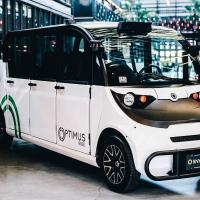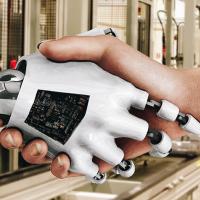Uprising
We’ve been afraid of robots for a lot longer than they’ve even been a reality. In fact, we’ve been afraid of robots for far longer than we’ve even called them “robots.” Do we have anything to fear at all? That depends on who you ask. Meet the people and bots who are already living the reality of the robot uprising.

The truth about self-driving cars
Self-driving cars have the potential to save thousands of lives and reduce carbon emissions. Will we be smart enough to hop on board?
All Episodes (7)
Self-driving cars have the potential to save thousands of lives and reduce carbon emissions. Will we be smart enough to hop on board?

The issue with completely taking humans out of warfare? Our ability to feel and evaluate complex situations, using human judgement and moral understanding, is not something an artificial intelligence can easily learn.

Beyond the brains of even the most intelligent human beings lies artificial superintelligence, which could pose serious threats to the human race. Nick Bostrom is attempting to fathom the unfathomable so we can be ready.

An ever-increasing number of robots in the workplace may force us to change our perception of the sort of work we deem worthy of human minds and hands. Instead of stealing our jobs, think of robots as taking on the duties nobody really wants, anyway.

Meet BUDDY, an advanced robot designed with an expressive face and gentle voice. With human-like emotions and different moods, BUDDY has the ability to care for the elderly and his human companions.

These robots can lift heavy objects, crawl through rugged terrain, and climb challenging structures to save lives. But search and rescue robots won’t be rendering human first responders obsolete anytime soon. They’re designed to assist and protect them from unnecessary harm.

